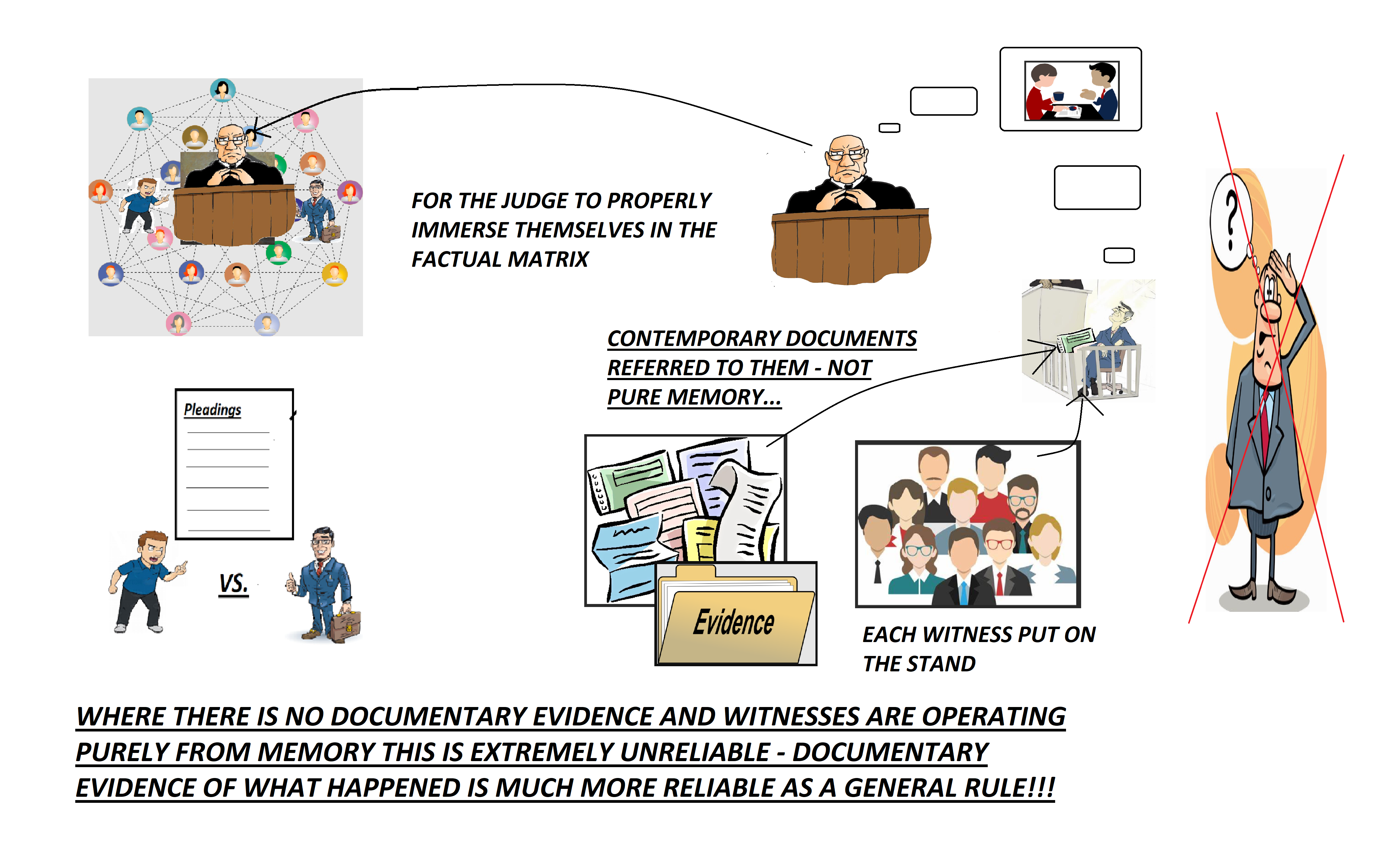Armagas Ltd v. Mundogas S.A. (The Ocean Frost), [1985] 1 Lloyd's Rep. 1, ’The Ocean Frost’
Citation:Armagas Ltd v. Mundogas S.A. (The Ocean Frost), [1985] 1 Lloyd's Rep. 1, ’The Ocean Frost’
Rule of thumb:What is the normal way that facts in a case are to be inferred in Court? The Judge stated that the 2 most important forms of evidence are documentary evidence and motives, and then obtain witness statements from there because witness statements on their own can be very unreliable.
Background facts:
The basic facts were that a sales agent working for a shipping company was trying to get another company’s President to enter a contract with them to sell their ship to which they would rent back to them for a period of 1 year before the purchasing payment was owed – the President said he would only do the deal to sell the ship if the period for renting the ship back before purchase payment was 3 years. The sales agent could not agree a deal on the basic best terms his shipping company were prepared to offer the other shipping company for their ship, so he therefore offered the president of the other shipping company an additional bung/bribe, and this got the contract agreed for the 1 year rent-back followed by the sale. The company who sold the ship then refused to honour the deal and accept the payment for the ship at the end of the 1 year period. The president denied that the bung had taken place, and that this payment was for other reasons.
Judgment:
The Court affirmed that the motive of the president combined with the documentary evidence, as well as the general surrounding circumstances, meant that the President had taken a bung/bribe and that the company did not have to honour the contract, with the witness evidence being very unreliable in these circumstances. Where there is documentary evidence like combined with motive, this is much more powerful than witness recollections & understandings of events.

Ratio-decidendi:
‘Speaking from my own experience, I have found it essential in cases of fraud, when considering the credibility of witnesses, always to test their veracity by reference to the objective facts proved independently of their testimony, in particular by reference to the documents in the case, and also to pay particular regard to their motives and to the overall probabilities. It is frequently very difficult to tell whether a witness is telling the truth or not; and where there is a conflict of evidence such as there was in the present case, reference to the objective facts and documents, to the witnesses’ motives, and to the overall probabilities, can be of very great assistance to a Judge in ascertaining the truth. I have been driven to the conclusion that the Judge did not pay sufficient regard to these matters in making his findings of fact in the present case… although Mr. Magelssen did not have ostensible authority to enter into the contract, he did have ostensible authority to tell Mr. Jensen and Mr. Dannesboe that he had obtained actual authority to do so. This is, on its face, a most surprising conclusion. It results in an extraordinary distinction between (1) a case where an agent, having no ostensible authority to enter into a relevant contract, wrongly asserts that he is invested with actual authority to do so, in which event the principal is not bound; and (2) a case where an agent, having no ostensible authority, wrongly asserts after negotiations that he has gone back to his principal and obtained actual authority, in which event the principal is bound. As a matter of common sense, this is most unlikely to be the law…’, LJ Goff at 57, ‘My Lords, the foregoing represents the minimum statement of the facts of the case necessary to enable the legal issues which arise to be examined. The judgment of Robert Goff L.J. in the Court of Appeal [1985] 1 Lloyd's Rep. 1, 49-64 contains a most impressive analysis of all the material evidence leading to detailed findings of facts to which reference may be made’, Lord Keith.
Warning: This is not professional legal advice. This is not professional legal education advice. Please obtain professional guidance before embarking on any legal course of action. This is just an interpretation of a Judgment by persons of legal insight & varying levels of legal specialism, experience & expertise. Please read the Judgment yourself and form your own interpretation of it with professional assistance.

